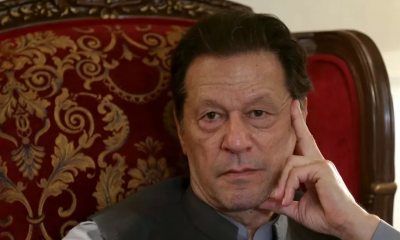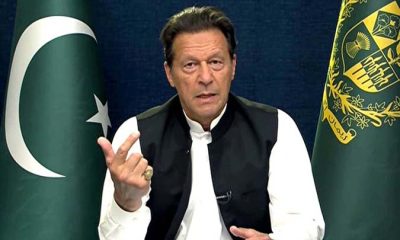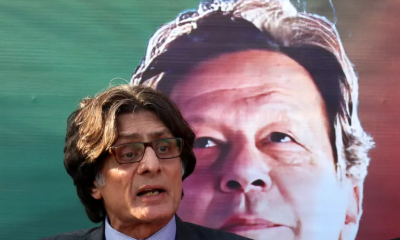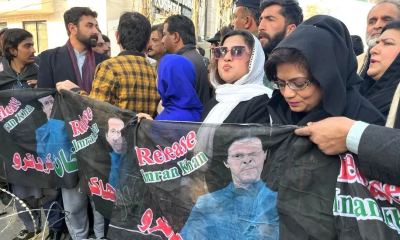News
Pakistan’s Khan set to march on Islamabad to demand snap polls
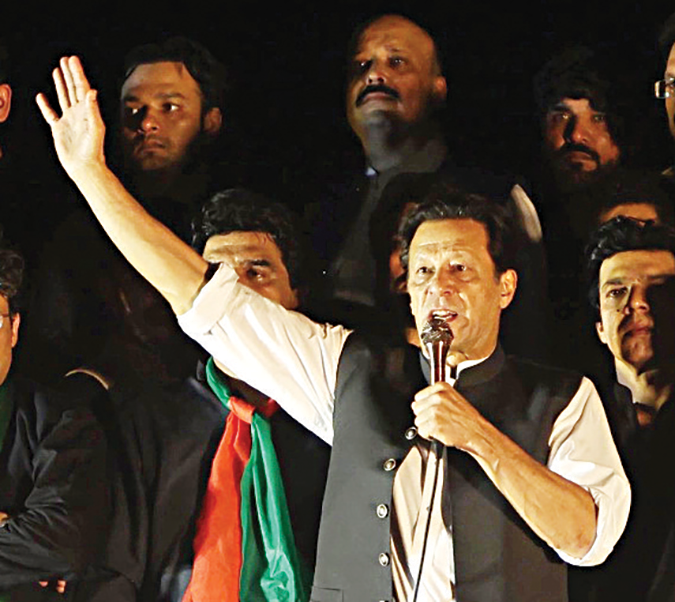
Former PM Imran Khan plans to lead a caravan of vehicles from Lahore to Islamabad with his supporters.
(Al Jazeera)Pakistan’s former Prime Minister Imran Khan has gathered hundreds of supporters in the eastern city of Lahore to join a caravan of cars and trucks heading for the capital, Islamabad, in an attempt to pressure the government to call snap polls.Since being removed in April through a parliamentary vote, Khan has held rallies across Pakistan, stirring opposition against a government that is struggling to bring the economy out of the crisis that Khan’s administration left it in.
Khan plans to lead the motorised caravan slowly northwards up the Grand Trunk Road to Islamabad, drawing more support along the way before entering the capital next week.By the time he gets there, Khan said he expects to have hundreds of thousands of people with him, and his Pakistan Tehreek-e-Insaf (PTI) party has asked authorities in the capital to allow a protest sit-in.
“I want that all of you participate. This is not for politics or personal gain, or to topple the government … this is to bring genuine
freedom to the country,” Khan said in a video message on the eve of the march.PTI members told journalists that the party was willing to negotiate with Prime Minister Shehbaz Sharif’s coalition government if it announced a date for a snap election.The government says polls will be held as scheduled in October next year. Khan says he is not willing to wait.
The growing crowd of Khan supporters in Lahore on Friday chanted slogans, including “Imran Tere Jannisar, Beshumar, Beshumar”, meaning “Imran, countless people are willing to give their life for you”. Laila, a mother of two from Toba Tek Singh, a city in the eastern province of Punjab, echoed those sentiments.
“I have come to Lahore to join the long march with my husband and two sons aged nine and 11. I am not concerned about security as Khan is struggling for a better future for my children,” she said, adding that she and her family would go to Islamabad and stay till the end.
As Khan’s supporters assembled in Lahore, large numbers of police were deployed along the 260km (160 miles) route to Islamabad.Khan has used this tactic before – most recently in May, weeks after he lost power. But that time police used tear gas after clashing with Khan’s supporters as they approached Islamabad’s sensitive “red zone”, and the rally quickly dispersed.
This time, Khan has called on protesters to stay peaceful and given assurances that he would not enter the “red zone” and the protest would remain in areas designated by the courts and local administration.
But given the politically charged environment, fears of violence persist. The federal government, which runs Islamabad, has indicated that any deviation from approved protest plans will be met with force from the city’s police.
Khan’s party is in government in two of Islamabad’s neighbouring provinces, Punjab and Khyber-Pakhtunkhwa, and the provincial police forces are expected to be providing security to marchers.With security enhanced in the capital and augmented by paramilitary forces, there is a fear that the forces could come face to face.
Crucially, Khan lacks backing from Pakistan’s powerful military, which has directly ruled the country for more than three of the seven-and-a-half decades since independence.Having once been regarded as close to the generals, Khan has accused the military of supporting his opponents’ move to remove him. The country’s powerful military says it is staying out of politics, and on Thursday the intelligence chief accused Khan of asking for “illegal and unconstitutional” support for his government.
News
Prime Minister Attends the 40th Anniversary of the Sri Lanka Nippon Educational and Cultural Centre
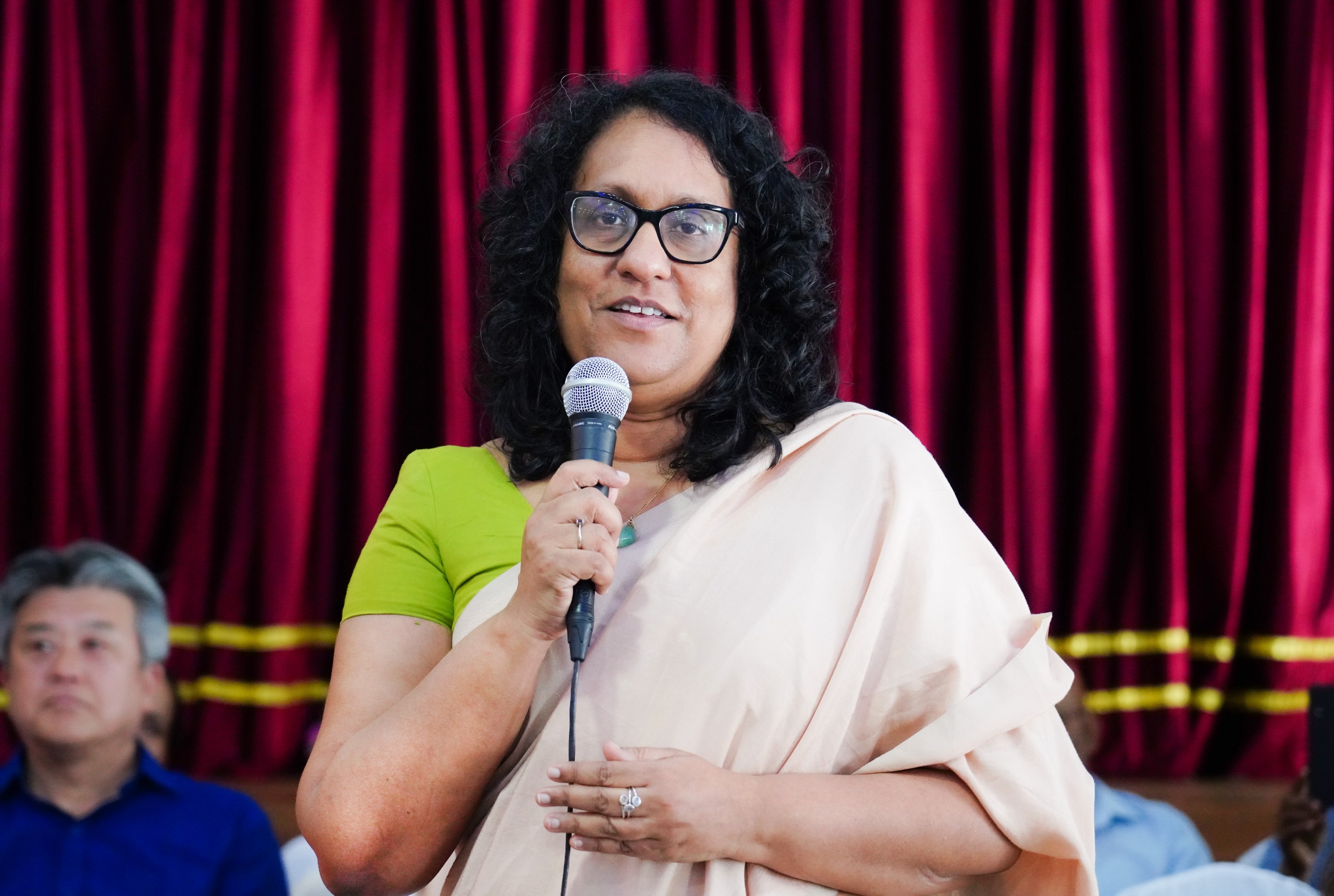
Prime Minister Dr. Harini Amarasuriya attended the special ceremony marking the 40th anniversary of the Sri Lanka Nippon Educational and Cultural Centre (SNECC), along with the 75th birthday of its Secretary General, the Chief Incumbent of Sri Mahindaramaya, Ethul Kotte, the Chief Sangha Nayake of the Western Province, and scholar Ven. Meegahathenna Chandrasiri Thero.
The primary objective of the event was to appreciate the service rendered by the Sri Lanka Nippon Educational and Cultural Centre, which has functioned as a bridge between Japan and Sri Lanka since 1986, contributing significantly to the development and welfare of children in Sri Lanka.
Addressing the gathering, the Prime Minister stated that the social service carried out by Ven. Meegahathenna Chandrasiri Thero through the Nippon Centre, aimed at fulfilling the educational aspirations of Sri Lankan children, is highly commendable. She further emphasized that the Centre’s contribution to nurturing skilled children into disciplined and responsible citizens, as well as strengthening cultural ties between the two countries, is appreciated by the Government.
Over the past four decades, thousands of students have benefited from the “Nippon Scholarship” programme implemented by the Centre. In addition to providing school supplies, monthly financial assistance, medical support, and spectacles, the programme offers Japanese language education and guidance for employment and training opportunities in Japan for Sri Lankan youth. Annual study tours to Japan and collaborative programmes organized to enhance mutual understanding between students of the two countries were also highlighted at the event.
Marking this special occasion, the Prime Minister extended her best wishes to Ven. Meegahathenna Chandrasiri Thero on his 75th birthday and wished him continued strength to successfully carry forward this invaluable service.
The event was attended by the Mayor of Kotte, Arosha Atapattu, representatives of sponsoring organizations from Japan, scholarship recipients, and other distinguished guests.
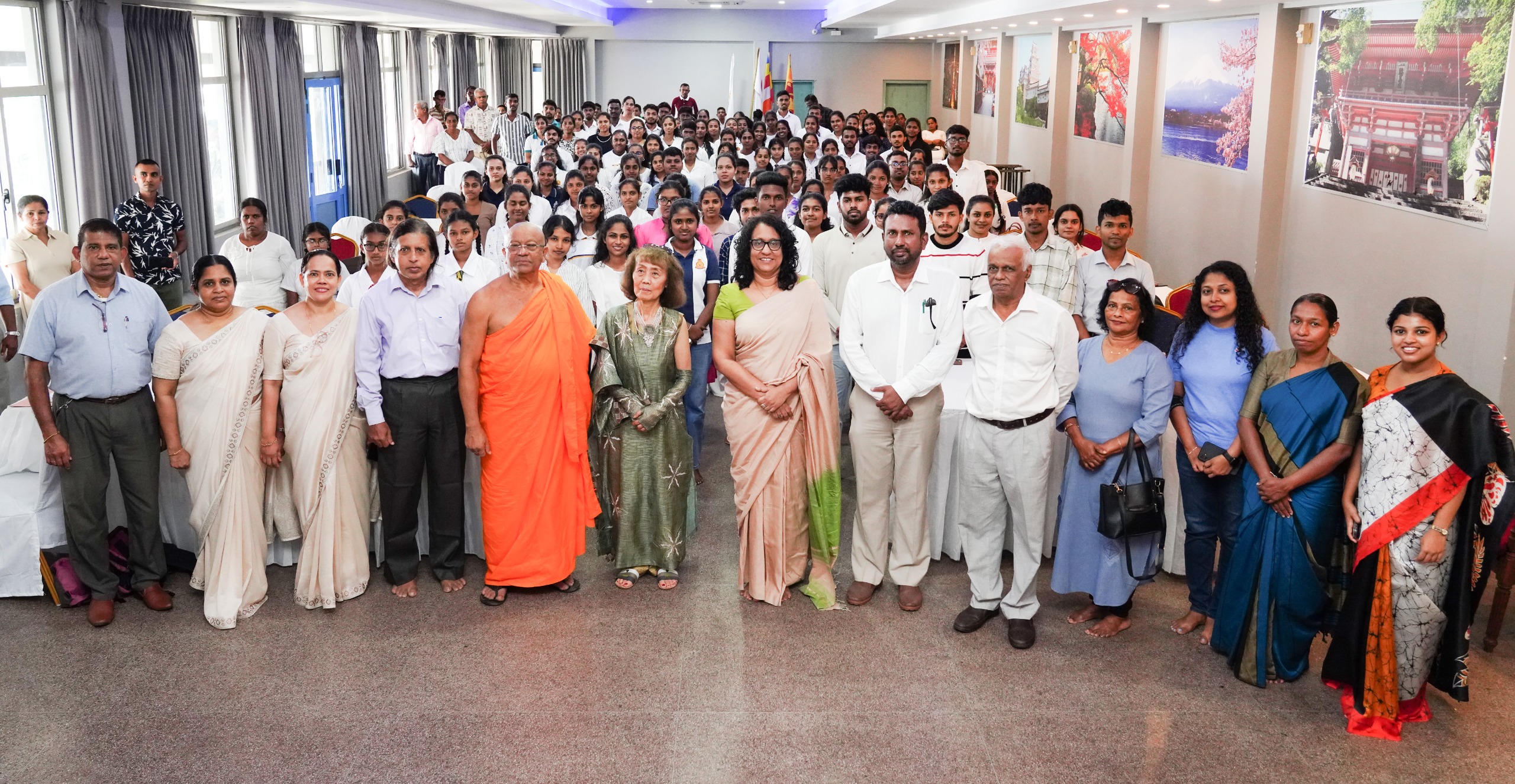
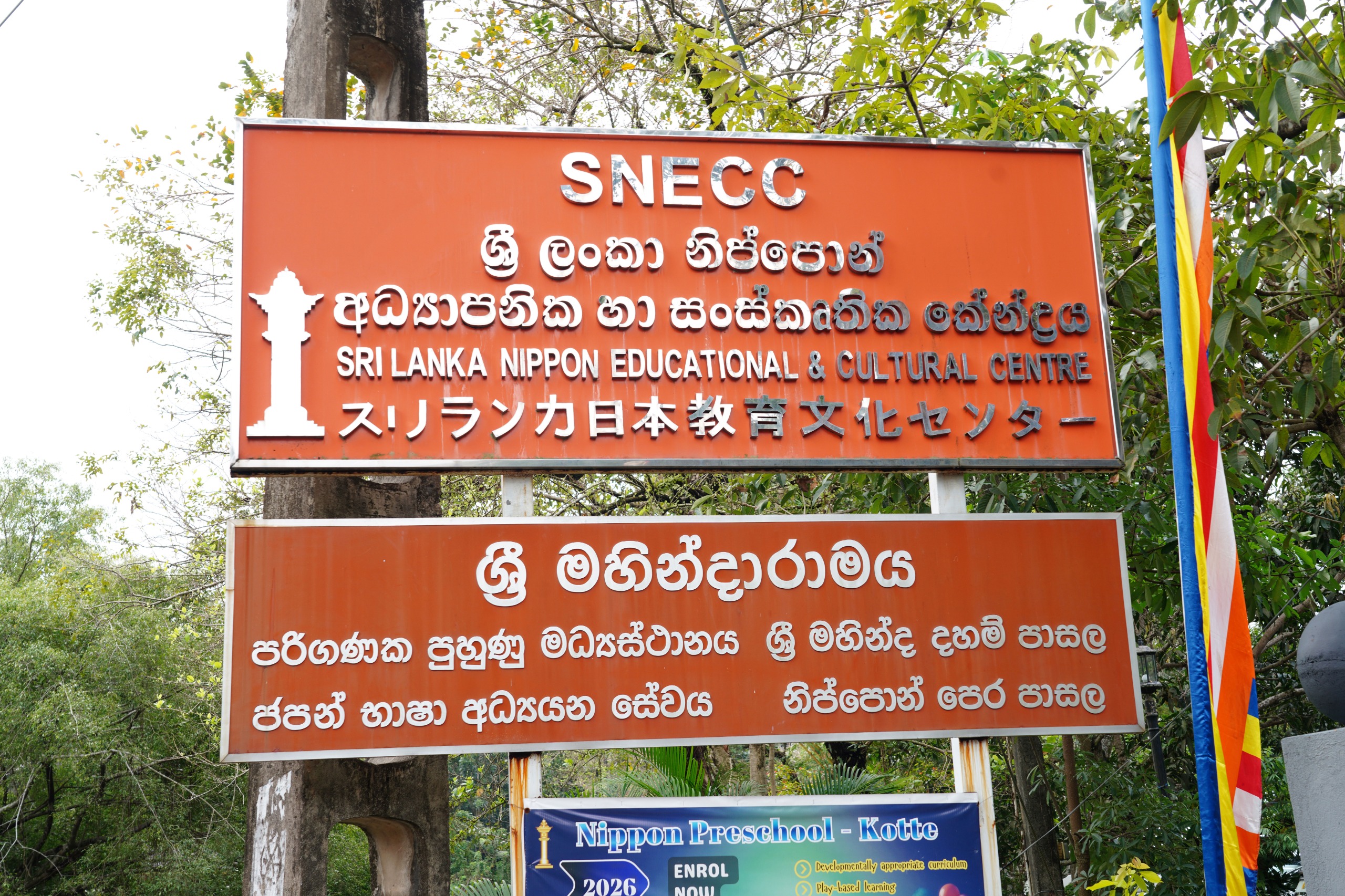
[Prime Minister’s Media Division]
Latest News
Navy’s latest addition P 628 sails for Colombo from Baltimore
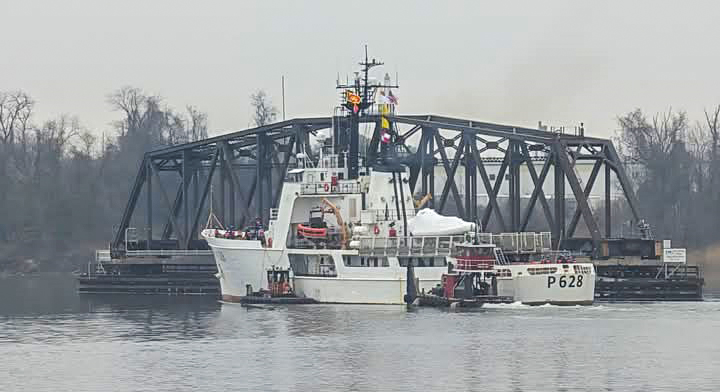
The Offshore Patrol Vessel P 628, which was formally handed over to the Sri Lanka Navy by the U.S. Coast Guard in December 2025, departed for Sri Lanka from Baltimore, United States on 20th February 2026. The home bound journey began, after the modernization work of the ship to suit the operational needs of the Sri Lanka Navy.
The EX-United States Coast Guard Cutter, USCGC Decisive was officially handed over to the Sri Lanka Navy on 02 Dec 25, as the latest addition to the SLN fleet under the Pennant Number P 628. Upon her arrival in Sri Lanka, the ship is scheduled to be formally commissioned into the fleet.
Measuring 64 metres in length, this ‘B-Type Reliance Class 210-foot Cutter’ is equipped with advanced technological systems and facilities, capable of conducting extensive surveillance operations spanning up to 6,000 nautical miles per patrol.
The vessel’s voyage to Colombo is historic, possibly marking the longest-ever passage undertaken by a Sri Lanka Navy ship. Covering approximately 14,775 nautical miles, the journey will see the P 628 navigate from Baltimore through the Atlantic Ocean, the Panama Canal (a first for a Sri Lankan naval vessel), the Pacific Ocean, and into the Indian Ocean via the Straits of Malacca. The ship is expected to arrive in Sri Lanka during the first week of May 2026.
During the transit, the P 628 is scheduled to make port calls to replenish supplies and services, providing opportunities to further strengthen diplomatic ties with partner nations.
This transfer represents the fourth vessel provided to the Sri Lanka Navy by the United States Coast Guard, reinforcing a long-standing partnership aimed at addressing common maritime challenges.
News
Commander of the Navy attends International Fleet Review
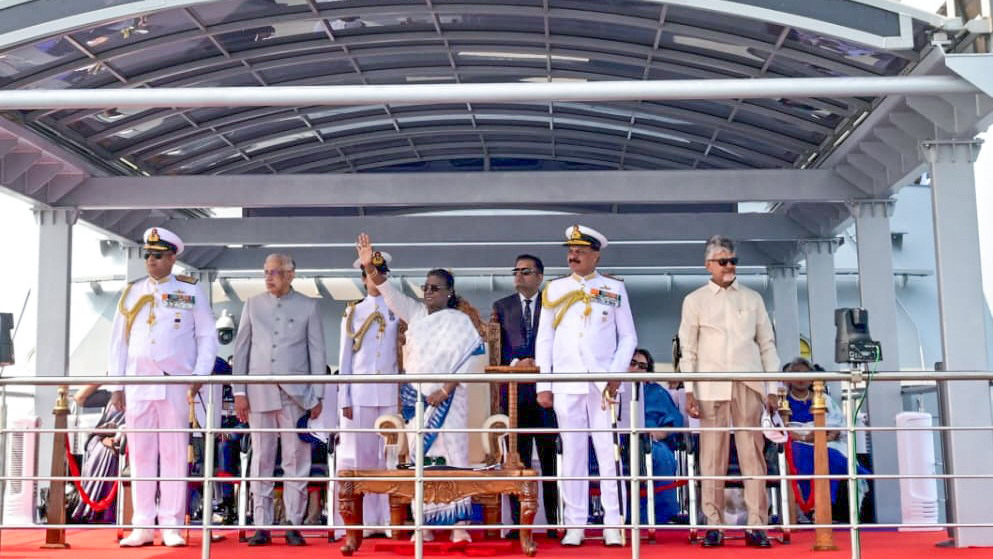
The 13th edition of the multilateral naval exercise MILAN hosted by the Indian Navy, is being held from 18 to 26 Feb 26, at Visakhapatnam and in the waters of the Bay of Bengal.
SLNS Sagara and Nandimithra represented the Sri Lanka Navy by participating in the International Fleet Review (IFR), a major component of this multilateral naval exercise, held on 18 Feb.
The event was attended by the Commander of the Sri Lanka Navy, Vice Admiral Kanchana Banagoda, at the invitation of the Chief of the Naval Staff of India, Admiral Dinesh K Tripathi. The President of India reviewed the IFR, participated by the warships representing regional and global navies.
Held under the theme “United Through Oceans and the spirit of Camaraderie Cohesion Collaboration,” IFR and MILAN-26 provide a vital platform for participating nations. The participation of the Sri Lanka Navy in the MILAN-26 multilateral naval exercise highlighted Sri Lanka’s commitment to advancing its maritime interests and addressing shared challenges through enhanced cooperation with other nations and institutions, grounded in mutual understanding.
Furthermore, participation in endeavours of this nature will strengthen mutual cooperation and interoperability with other maritime stakeholders. It will also provide the Sri Lanka Navy with valuable opportunities to gain new knowledge, strategic acumen, and operational experience, key elements in fostering a collective approach to maritime security.
During this visit, the Navy Commander engaged in bilateral discussions with regional and extra-regional diplomatic representatives and these strategic-level talks focused on matters of mutual interest pertaining to Sri Lanka’s maritime security and stability.
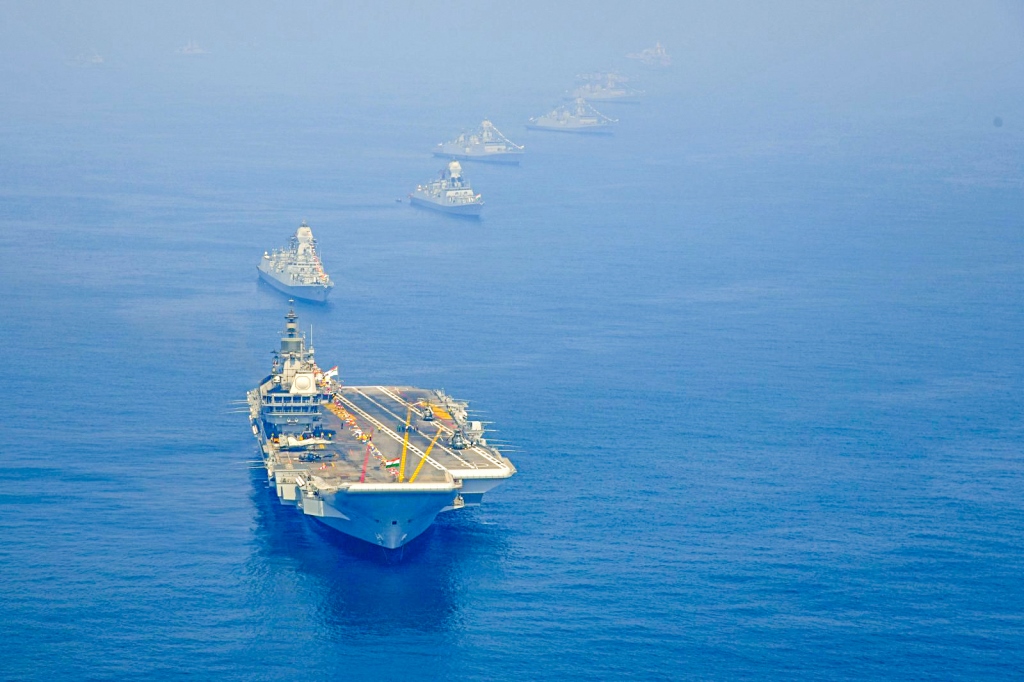
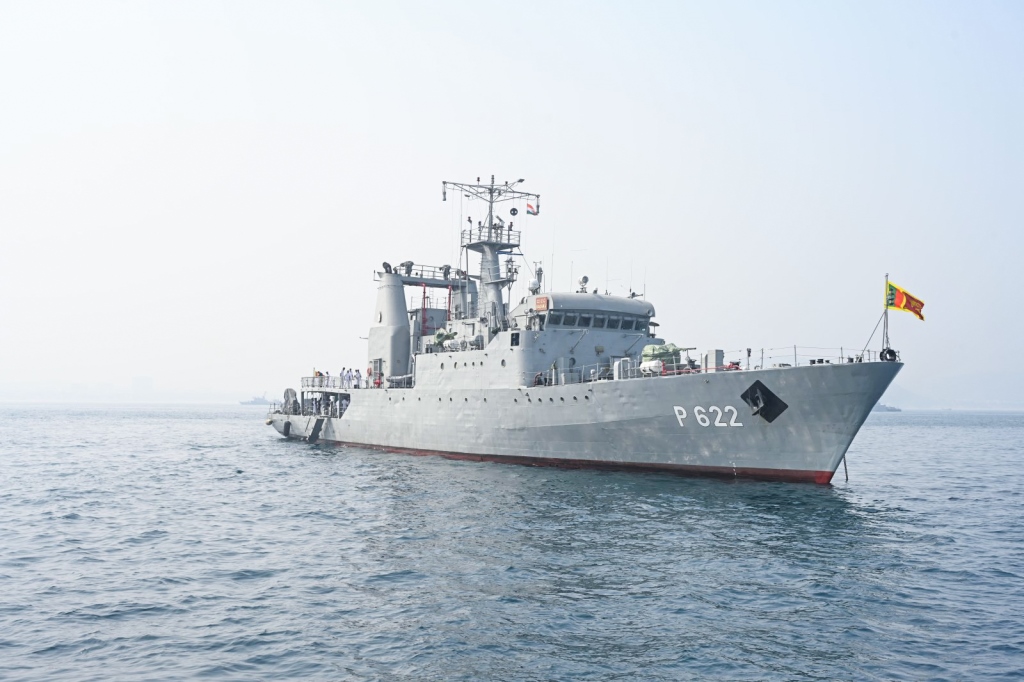
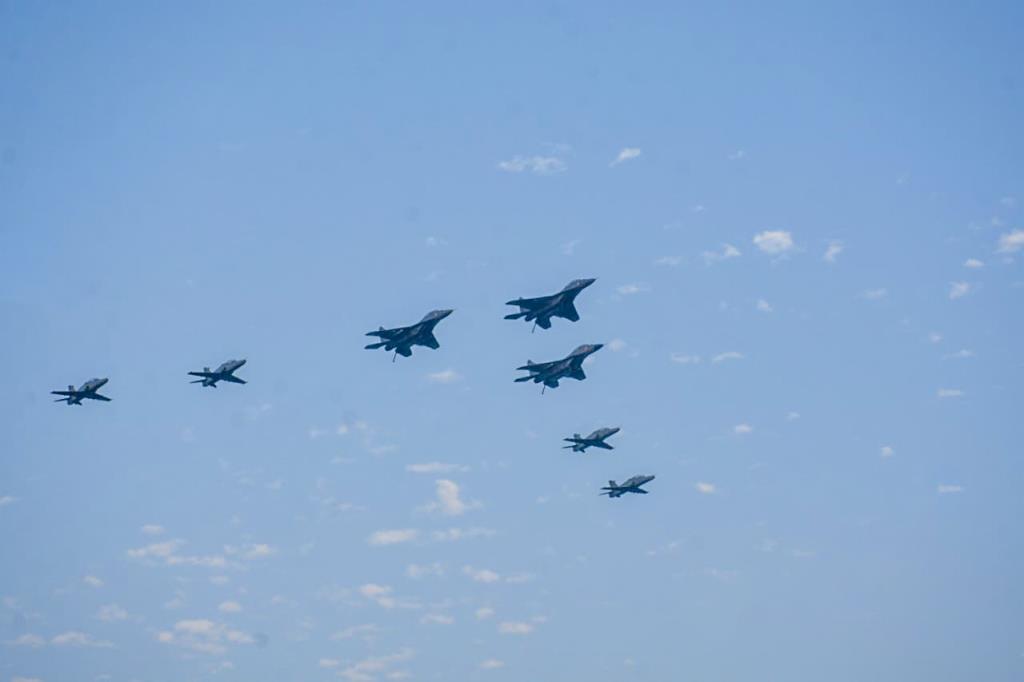
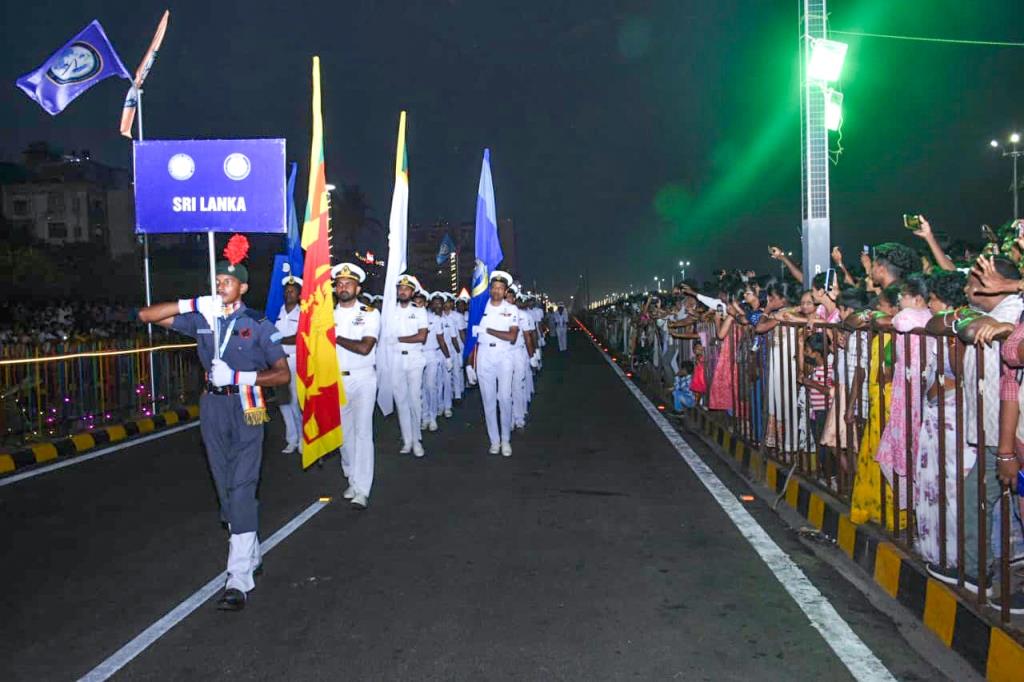
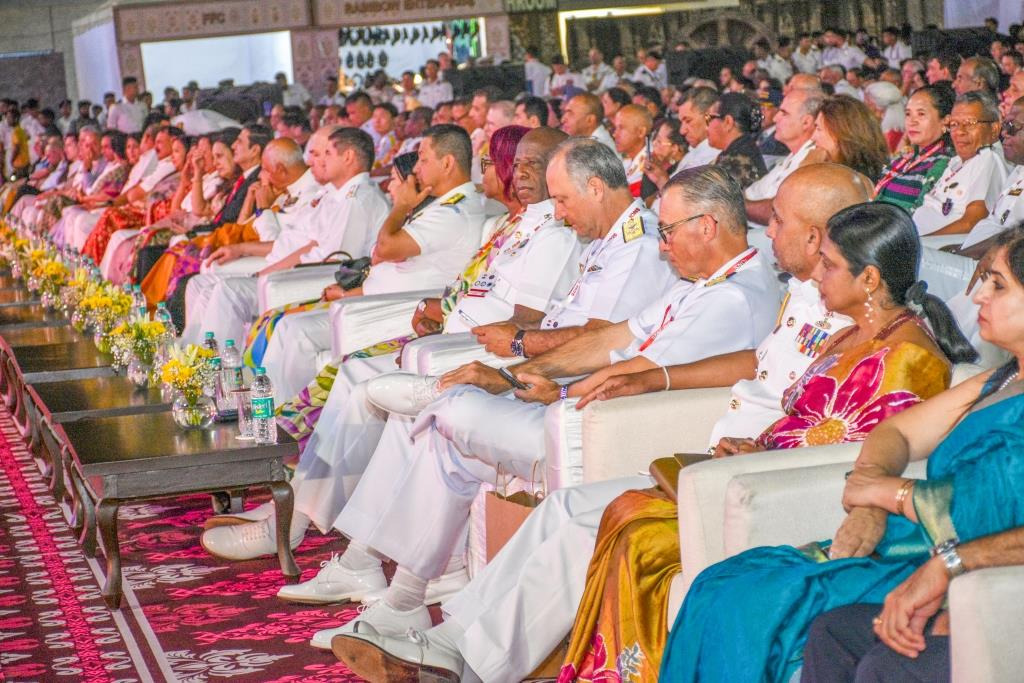
[Navy Media]
-

 Features2 days ago
Features2 days agoWhy does the state threaten Its people with yet another anti-terror law?
-

 Features2 days ago
Features2 days agoVictor Melder turns 90: Railwayman and bibliophile extraordinary
-

 Features2 days ago
Features2 days agoReconciliation, Mood of the Nation and the NPP Government
-

 Features2 days ago
Features2 days agoVictor, the Friend of the Foreign Press
-

 Latest News3 days ago
Latest News3 days agoNew Zealand meet familiar opponents Pakistan at spin-friendly Premadasa
-

 Latest News3 days ago
Latest News3 days agoTariffs ruling is major blow to Trump’s second-term agenda
-

 Latest News3 days ago
Latest News3 days agoECB push back at Pakistan ‘shadow-ban’ reports ahead of Hundred auction
-

 Features13 hours ago
Features13 hours agoLOVEABLE BUT LETHAL: When four-legged stars remind us of a silent killer


